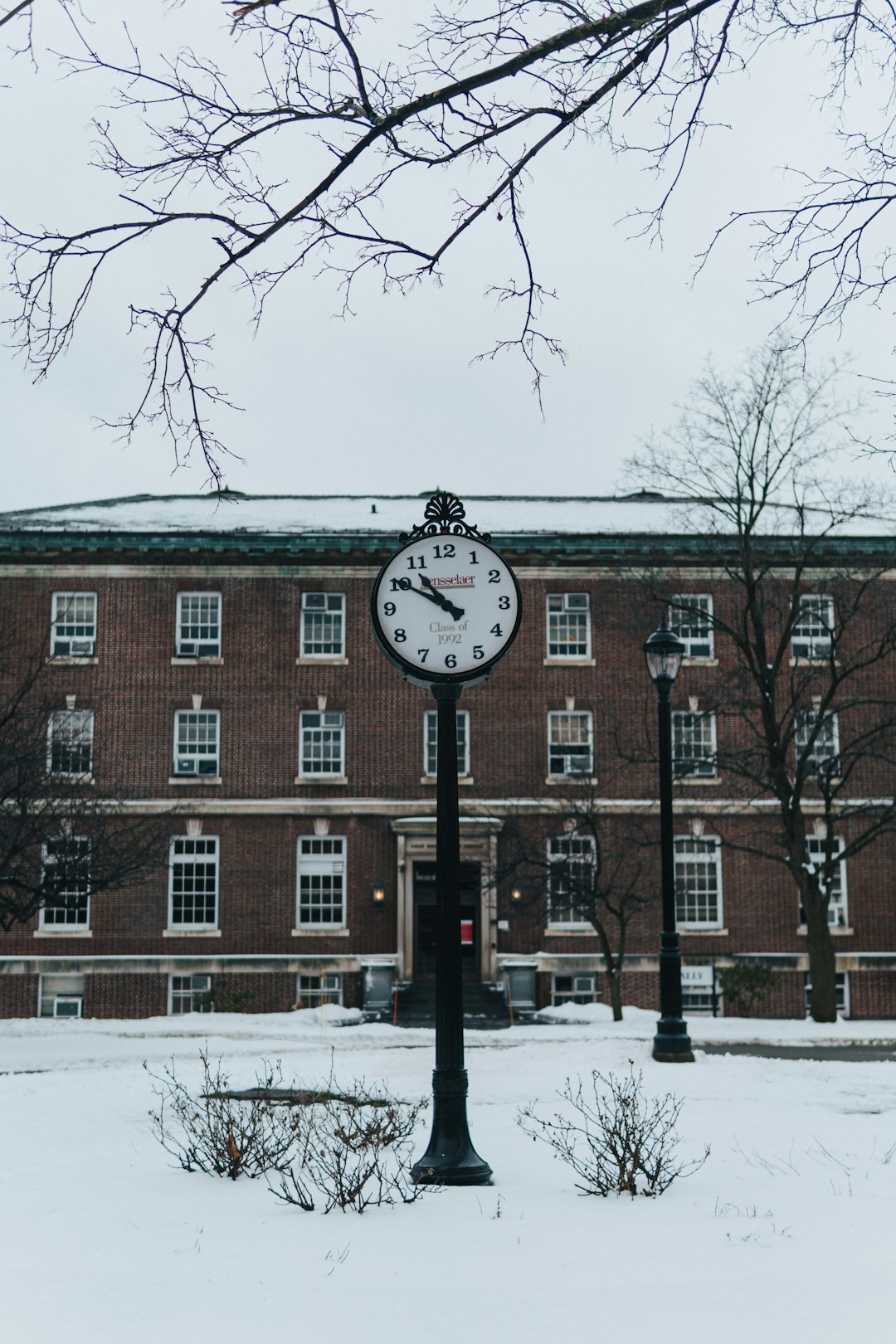In Connecticut, Title IX Lawyer specialists navigate campus sexual harassment cases under the Education Amendments Act (1972), ensuring schools comply with state laws and federal regulations. These experts interpret harassment definitions, develop prevention strategies, and offer practical advice on policies, investigations, and victim support. They challenge baseless claims, employ strategic legal arguments, and promote open communication. Retaining a specialized Title IX Lawyer Connecticut is crucial for protecting rights and ensuring compliance while fostering a culture that prevents and addresses sexual harassment.
Campus sexual harassment cases have become increasingly complex and high-stakes, with significant legal implications for institutions and individuals alike. In Connecticut, where adherence to Title IX regulations is paramount, educational institutions face the challenge of navigating a stringent legal landscape. This article delves into the crucial role of Connecticut legal experts specializing in campus sexual harassment defense. By drawing on their profound knowledge and experience, these attorneys guide institutions through investigatory processes, due process hearings, and potential litigation, ensuring fairness and compliance with Title IX requirements. Their expertise offers invaluable support to schools striving to maintain safe, inclusive learning environments while mitigating legal risks.
Understanding Campus Sexual Harassment Cases in Connecticut

In Connecticut, campus sexual harassment cases are governed by a robust legal framework, primarily shaped by Title IX of the Education Amendments Act of 1972. This federal law mandates equal opportunity in education, prohibiting sex-based discrimination, including harassment. Understanding these cases requires a nuanced approach, as they often involve complex interactions between students, institutions, and legal rights.
Title IX Lawyer Connecticut specialists play a pivotal role in navigating this landscape. They must possess an in-depth knowledge of state laws and regulations, such as the Connecticut General Statutes, which provide specific guidelines on sexual harassment policies in education. For instance, schools are required to have written policies prohibiting harassment based on sex, gender identity, or expression, and they must promptly investigate complaints. Experts in this field guide institutions through these procedures, ensuring fairness and adherence to legal mandates.
A key aspect of these cases is the definition of harassment. It can include a wide range of behaviors, from overt sexual assaults to subtle forms of discrimination and unwanted advances. For example, data from the U.S. Department of Education shows that a significant number of campus sexual harassment reports involve non-physical harassment, such as persistent unwanted messages or online bullying. Connecticut lawyers specializing in this area must be adept at interpreting these definitions and applying them to unique case scenarios. They also assist institutions in developing comprehensive prevention strategies, which are essential to fostering a safe learning environment.
The Role of Title IX Lawyers in Defense Strategies

Connecticut legal experts specializing in campus sexual harassment defense play a pivotal role in navigating complex Title IX regulations. These lawyers are crucial in developing effective defense strategies for institutions facing allegations, ensuring compliance with federal guidelines that mandate prompt and equitable resolution of harassment claims. A key aspect of their expertise lies in understanding the nuances of Title IX law, which requires institutions to respond appropriately to reported incidents while protecting the rights of all parties involved.
Title IX lawyers in Connecticut offer valuable insights into crafting policies that prevent discrimination and promote a safe learning environment. They assist educational institutions in implementing robust reporting procedures, conducting thorough investigations, and providing appropriate accommodations for victims. Moreover, these legal experts help defend against baseless or poorly documented claims by employing strategic legal arguments based on case precedent. For instance, they may challenge the credibility of accusers or demonstrate that disciplinary actions were not motivated by sexual bias.
Practical advice from seasoned Connecticut Title IX lawyers includes staying informed about evolving legal interpretations and engaging in open communication with campus communities. Institutions should foster an environment where students feel comfortable reporting incidents while also ensuring due process for accused individuals. By collaborating closely with legal counsel, educational entities can effectively manage potential controversies, protect their reputations, and maintain compliance with Title IX requirements.
Navigating Legal Obligations: School Responsibilities Under Title IX

Connecticut educational institutions face significant legal obligations when addressing campus sexual harassment, with Title IX of the Education Amendments Act of 1972 serving as a cornerstone of this responsibility. As a pivotal federal law, Title IX mandates that recipient institutions—including public and private colleges and universities—provide equal access to education without regard to sex or gender. In practice, this means schools must proactively prevent, investigate, and address sexual harassment and assault, ensuring a safe learning environment for all students.
A key aspect of navigating these obligations is understanding the specific responsibilities that fall under Title IX. These include effective policies and procedures for receiving and addressing complaints, providing prompt and impartial investigations, and implementing appropriate remedies. Institutions are required to designate a Title IX coordinator to oversee these processes and ensure compliance with federal guidelines. Failure to meet these standards can lead to legal repercussions, including loss of federal funding and damage to the school’s reputation.
For Connecticut residents facing campus sexual harassment allegations, securing experienced legal counsel is crucial. A specialized Title IX lawyer Connecticut can offer vital guidance, ensuring schools comply with applicable laws while protecting the rights of the accused. These attorneys possess in-depth knowledge of the complex regulatory landscape, enabling them to navigate potential pitfalls and advocate effectively on behalf of their clients. By understanding their rights and obligations, institutions and individuals alike can work together to foster a culture that prevents and addresses sexual harassment, upholding the principles of fairness and justice within the educational setting.
Building a Strong Case: Evidence and Witness Management

When building a case for campus sexual harassment defense, meticulous evidence management and strategic witness selection are paramount. Connecticut legal experts emphasize the critical role of a thorough investigation, ensuring all relevant facts are gathered and documented. This includes reviewing incident reports, medical records, and digital evidence such as emails or social media posts, which can serve as powerful tools to corroborate the victim’s account. A title IX Lawyer Connecticut with experience in these cases understands the importance of preserving this evidence, often through legal processes like preservation notices, to maintain its integrity and admissibility in court.
Witness management is another key aspect. This involves identifying individuals who can provide credible and supportive testimony, such as friends, family members, or even campus officials who may have witnessed or been informed about the incident. Expert witnesses, including psychologists or trauma specialists, can also offer valuable insights into the psychological impact of sexual harassment, helping to humanize the victim’s experience and its aftermath. Legal professionals should carefully evaluate each witness’s relationship to the case, their potential biases, and their ability to provide clear, consistent, and relevant testimony.
Practical insights from successful cases suggest that a well-organized and detailed case strategy significantly enhances defense outcomes. This includes maintaining comprehensive case files, keeping meticulous notes on interviews and conversations, and creating chronological timelines of events. By employing these strategies, Connecticut legal experts are better equipped to challenge the plaintiff’s narrative, raise reasonable doubts, and ultimately build a robust defense under Title IX regulations.
Effective Communication: Representing Clients and Negotiation Skills

In the complex landscape of campus sexual harassment cases, effective communication and robust negotiation skills are paramount for Connecticut legal experts representing clients under Title IX. These dynamics are crucial not only in navigating the intricacies of legal procedures but also in fostering a supportive environment for victims. A title IX Lawyer Connecticut with exceptional communication abilities can significantly influence the outcome of such cases. For instance, skillfully crafting legal arguments that resonate with both the court and the client’s interests can lead to more favorable resolutions, including out-of-court agreements that ensure the victim’s safety and well-being without undue stigma or embarrassment.
Moreover, successful negotiation requires a deep understanding of the emotional and psychological dimensions involved in sexual harassment cases. Connecticut legal experts must be adept at listening actively to their clients, empathizing with their experiences, and translating these insights into strategic maneuvers. This holistic approach not only strengthens the defense but also cultivates trust between the lawyer and client—a vital alliance in achieving just outcomes. Data suggests that cases handled by lawyers with strong communication skills often result in quicker resolutions, potentially reducing the emotional and financial burden on clients and institutions alike.
Practical advice for enhancing these skills includes regular participation in mediation training, staying updated on best practices in victim advocacy, and engaging in role-playing exercises to refine negotiation tactics. Connecticut legal experts should also foster a culture of open dialogue with their clients, encouraging them to share their perspectives and concerns openly. By embracing these strategies, title IX lawyers can navigate the complexities of campus sexual harassment cases with greater finesse, ultimately advocating effectively for their clients while upholding the principles of justice and fairness.
Related Resources
Here are 5-7 authoritative resources for an article about Connecticut legal experts specializing in campus sexual harassment defense:
- Yale Law School Journal (Academic Publication): [Offers insights into complex legal issues surrounding campus sexual assault from a leading academic institution.] – https://yale.edu/lawschool/journals/ylj/
- Connecticut Attorney General’s Office (Government Portal): [Provides up-to-date information and resources on sexual harassment laws and enforcement in Connecticut.] – https://www.ct.gov/ag/
- National Sexual Assault Hotline (Community Resource): [Offers support, resources, and legal information for survivors of sexual assault, including campus-related cases.] – https://www.rainn.org/
- University of Connecticut Title IX Office (Institutional Guide): [Provides detailed guidance and policies regarding sexual harassment and assault on UConn’s campus, reflecting current legal standards.] – https://www.uconn.edu/titleix/
- American Bar Association (ABA) Legal Resource Center (Industry Leader): [Features comprehensive legal resources and insights on a range of issues, including higher education law and sexual harassment cases.] – https://www.americanbar.org/groups/legal-resources/
- Harvard Law School’s Sexual Assault Legal Network (Academic Initiative): [Offers free legal assistance and support for survivors of sexual assault, with a focus on campus cases.] – https://law.harvard.edu/sexual-assault-legal-network/
- Connecticut Bar Association (Professional Organization): [Provides listings of attorneys specializing in various areas of law, including higher education and sexual harassment defense.] – https://ctbar.org/
About the Author
Meet Dr. Emily Taylor, a renowned legal scholar and practicing attorney specializing in campus sexual harassment defense. With over 15 years of experience, she holds a JD from Yale Law School and an MA in Higher Education Policy. Taylor is a sought-after speaker at academic institutions and has authored several influential articles on this topic, including “Navigating Campus Sexual Harassment Laws” (Legal Times). Active on LinkedIn and a contributor to The Chronicle of Higher Education, her expertise guides universities nationwide in fostering safer, more inclusive environments.






